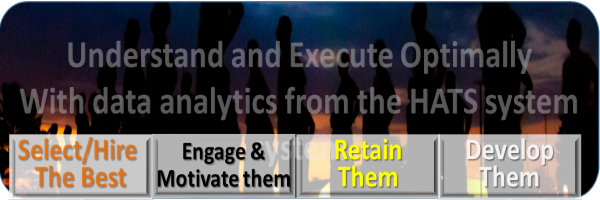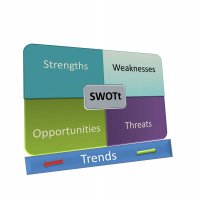In part one, we discussed 5 of the pitfalls that impact talent decisions. Here we'll discuss 3 more and draw some overall conclusions.
Failure to detect deception: We tend to like or favor those who are like us and other proven biases often prevent us detecting that we are being deceived. Good preparation, good storytelling, sociability, good acting - all are things that can accentuate bias and prevent detection from being detected. Most importantly, for the most part, good interviewing doesn't necessarily mean good performance on the job.
Over-reliance on intuition: Intuition is a good thing when used properly but when your experience base with the person is very small and the scope of data limited-- it results in highly biased and ineffective decisions
Considering personality and overlooking evidence of capability: (Another symptom of being blinded by emotion) Decision-making is the process of accepting less of one thing to get more of something else. This often leads decision makers to focus on a few rule of thumb personality traits or whether they are likeable, as an example. Likeable and capable don't always go together. There is no perfect candidate, but there is a best candidate. You can effectively determine this by weighting properly all the eligibility factors (experience, knowledge, job skills) with all the suitability factors (motivations, preferences, attitudes, natural tendencies, values, …).
Do your own test? If you've had people interview someone a week or two ago- ask what they gleaned from that interview and then keep asking what else? until you've exhausted this line of questioning. Most of the time you'll be amazed at what they say and don't say and NOT in a positive way - Try it - you'll agree more with these points if you do.
What we believe is missing in most organizations is individual job-specific causal data on employees, managers and candidates that shows what underlies behaviors in situations. This data is known as behavioral suitability. One reason is, until recently, it really hasn’t' been available as a validated set of data i.e. we are not talking personality type information. Additionally, many people believe all individual assessment data is personality typing data and of course this generic data can often make talent management decisions less effective. This behavioral suitability information gives us accurate insights into behaviors in different areas and scenarios. It is also the only data that underlies high job specific predictive accuracy and which provides insight for improving behavior.
Having accurate behavioral suitability data has significant benefits for all facets of talent management and people decisions from attraction to selection to onboarding, performance management and development.




















 One of the most difficult challenges managers face is choosing the right people and understanding how to get them to perform at their best. During the last 12 years of our experience, we have found no other tool except the Harrison Assessment that enables this kind of capability with incredible accuracy and insight.
One of the most difficult challenges managers face is choosing the right people and understanding how to get them to perform at their best. During the last 12 years of our experience, we have found no other tool except the Harrison Assessment that enables this kind of capability with incredible accuracy and insight.















